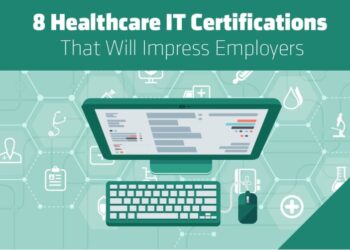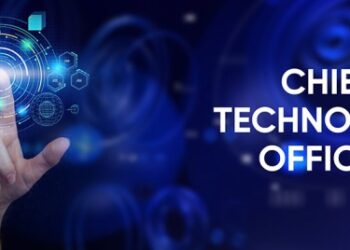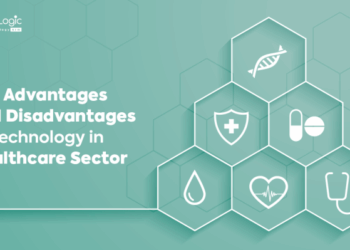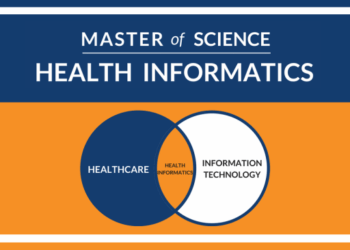Delving into the realm of healthcare technology, Chief Technology Officers play a pivotal role in driving innovation within Health Information Systems. This article aims to shed light on their crucial responsibilities and the impact of their work on the healthcare landscape.
Importance of Health Information Systems

Health Information Systems play a crucial role in modern healthcare by providing a framework for managing and analyzing healthcare data. These systems help healthcare organizations improve patient care, enhance patient outcomes, and streamline operations.
Impact on Patient Care and Outcomes
- Health Information Systems enable healthcare providers to access patient records quickly and efficiently, leading to more informed decision-making and personalized treatment plans.
- These systems facilitate communication among healthcare professionals, ensuring that all team members are on the same page regarding patient care.
- By tracking patient data over time, Health Information Systems help identify trends, monitor progress, and detect potential issues early on, ultimately improving patient outcomes.
Challenges Faced without Efficient Information Systems
- Healthcare organizations without efficient Information Systems may struggle with fragmented data, leading to errors in diagnosis and treatment.
- Lack of interoperability between systems can hinder the exchange of crucial patient information among different healthcare providers, impacting continuity of care.
- Inefficient data management can result in duplication of tests, unnecessary procedures, and increased healthcare costs, affecting both patients and healthcare organizations.
Key Responsibilities of Chief Technology Officers (CTOs) in Healthcare
Chief Technology Officers (CTOs) in healthcare play a crucial role in managing technology to drive innovation and improve patient care outcomes. They are responsible for overseeing the development and implementation of technology solutions that enhance the delivery of healthcare services.
Specific Duties and Responsibilities
- Developing and implementing technology strategies to support the organization's goals and objectives.
- Ensuring the security and privacy of patient health information through the implementation of robust cybersecurity measures.
- Leading the evaluation and selection of new technologies that can improve operational efficiency and patient outcomes.
- Collaborating with other departments to integrate technology solutions into existing workflows.
- Managing the IT infrastructure and overseeing the maintenance of hardware and software systems.
Comparison with Other Industries
While the role of a CTO in healthcare shares similarities with other industries, such as overseeing technology implementation and strategy development, healthcare CTOs face unique challenges related to regulatory compliance and patient data security. The critical nature of healthcare services also requires CTOs to prioritize reliability and accessibility in technology solutions.
Collaboration with Stakeholders
- Working closely with clinicians and healthcare providers to understand their technology needs and incorporate them into the overall IT strategy.
- Engaging with executive leadership to align technology initiatives with the organization's strategic priorities.
- Collaborating with IT teams to ensure the successful implementation and maintenance of technology solutions.
- Partnering with external vendors and industry experts to stay informed about emerging technologies and best practices.
Innovations in Health Information Systems
Health Information Systems have seen significant advancements in recent years, driven by technological innovations that have revolutionized the way healthcare is delivered and managed. The integration of AI, machine learning, and big data analytics has played a crucial role in enhancing the efficiency, accuracy, and effectiveness of healthcare services through information systems.
Impact of AI, Machine Learning, and Big Data
AI, machine learning, and big data have transformed Health Information Systems by enabling healthcare providers to analyze large volumes of data quickly and accurately. These technologies have the potential to improve diagnosis, treatment planning, personalized medicine, and patient outcomes. For example, AI-powered algorithms can analyze medical images to detect abnormalities or predict disease progression, while machine learning models can identify patterns in patient data to personalize treatment plans.
Successful Implementations of Innovative Technologies
One successful implementation of innovative technologies in healthcare is the use of AI-powered chatbots and virtual assistants to provide patients with real-time medical advice and support. These virtual agents can answer patient queries, schedule appointments, and even provide medication reminders, improving patient engagement and satisfaction
Another example is the adoption of predictive analytics tools that leverage big data to identify high-risk patients and intervene proactively to prevent adverse health events.
Strategies for CTOs to Drive Innovation
Innovation in healthcare organizations is crucial for improving patient care, operational efficiency, and overall outcomes. Chief Technology Officers (CTOs) play a vital role in driving innovation within the healthcare sector by implementing effective strategies and staying updated with emerging technologies.
Importance of Staying Updated with Emerging Technologies
CTOs must constantly stay informed about the latest technological advancements in the healthcare sector to identify opportunities for innovation. By keeping abreast of emerging technologies such as artificial intelligence, telemedicine, and blockchain, CTOs can leverage these tools to improve health information systems and enhance patient outcomes.
Best Practices for CTOs to Lead Successful Innovation Projects in Health Information Systems
1. Collaborate with key stakeholders: CTOs should work closely with clinicians, administrators, and other stakeholders to understand their needs and challenges, ensuring that innovation projects align with organizational goals.
2. Foster a culture of innovation: CTOs should create an environment that encourages creativity, risk-taking, and continuous improvement. This can be achieved through training programs, innovation labs, and cross-functional collaboration.
3. Prioritize cybersecurity: With the increasing digitization of healthcare data, CTOs must prioritize cybersecurity measures to protect patient information and ensure compliance with data privacy regulations.
4. Implement agile project management: By adopting agile methodologies, CTOs can respond quickly to changing requirements, reduce time to market, and deliver innovative solutions that meet the needs of healthcare organizations.
Overcoming Challenges in Implementing Innovative Health Information Systems
Implementing innovative health information systems in healthcare can be a complex process with various challenges that Chief Technology Officers (CTOs) need to address. These challenges can range from resistance to change, interoperability issues, budget constraints, to ensuring data security and privacy.
It is crucial for CTOs to strategize and implement solutions effectively to ensure successful adoption of new technologies in healthcare.
Resistance to Change
One of the common challenges faced by CTOs when implementing innovative health information systems is resistance to change from healthcare professionals. Healthcare staff may be comfortable with existing systems and processes, making it difficult to transition to new technologies. To address this challenge, CTOs can conduct thorough training programs, engage with staff early in the implementation process, and clearly communicate the benefits of the new system to gain buy-in from all stakeholders.
Interoperability Issues
Interoperability issues between different systems and devices can hinder the seamless exchange of patient information, leading to inefficiencies in healthcare delivery. CTOs can overcome this challenge by investing in interoperable systems, adopting industry standards for data exchange, and fostering collaboration between vendors to ensure compatibility between systems.
Budget Constraints
Limited budget allocation for implementing new technologies in healthcare can pose a significant challenge for CTOs. To address this issue, CTOs can prioritize investments based on the organization's needs, explore cost-effective solutions, leverage open-source platforms, and seek partnerships with vendors for flexible payment options or financing models.
Data Security and Privacy
Ensuring data security and privacy is paramount when implementing innovative health information systems to protect sensitive patient information from breaches or unauthorized access. CTOs can implement robust security measures, encryption protocols, access controls, and regular audits to safeguard data integrity and confidentiality.
Compliance with regulations such as HIPAA is essential to maintain patient trust and confidentiality.
Conclusion
In conclusion, Chief Technology Officers are instrumental in spearheading technological advancements in Health Information Systems, ultimately enhancing patient care and outcomes. Their strategic leadership and collaboration with stakeholders pave the way for a future where innovation thrives in healthcare.
Expert Answers
How can CTOs drive innovation in Health Information Systems effectively?
CTOs can drive innovation by fostering a culture of creativity, staying updated on emerging technologies, and collaborating with other stakeholders in healthcare organizations.
What are some common challenges faced by CTOs when implementing new technologies in healthcare?
Common challenges include resistance to change, budget constraints, and ensuring data security and privacy while implementing innovative technologies.
How do AI, machine learning, and big data impact healthcare through information systems?
These technologies help in enhancing diagnostics, personalized medicine, and predictive analytics, leading to improved patient outcomes and operational efficiency in healthcare.









